June 3, 2025 | 15:27 GMT +7
June 3, 2025 | 15:27 GMT +7
Hotline: 0913.378.918
June 3, 2025 | 15:27 GMT +7
Hotline: 0913.378.918
Le Van Thiet, Deputy Director of the Plant Protection Department under the Ministry of Agriculture and Rural Development said that if someone wanted to export agricultural products to demanding markets such as the US, Japan, Korea, New Zealand or China, planting area code and packing facility code are prerequisites.
Now, importers do not require a producer to show certificates of VietGAP or GlobalGAP but require planting area codes and packing facility codes which prove the exported products are without residues of pesticides that are not allowed to use or used excessive than permitted.
Currently, 63 provinces and cities are applying two standards 774 and 775 to control the codes of planting and packing areas.
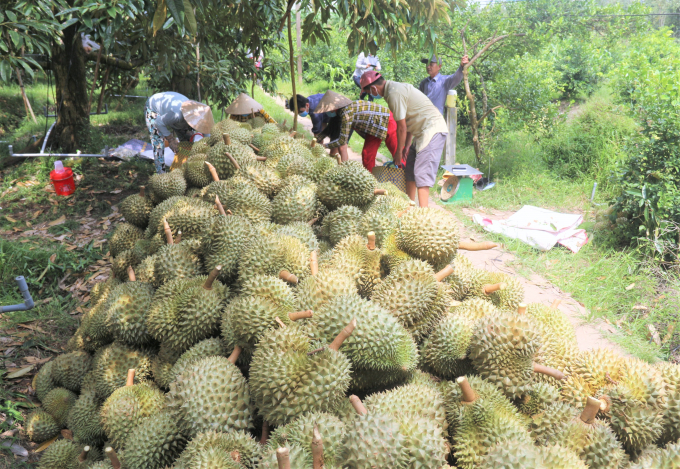
Planting area codes and packing facility codes are prerequisites to export agricultural products to demanding markets such as the US, Japan, Korea, New Zealand or China.Photo: TL.
Particularly for the Chinese market, there are ten types of fruit that are officially exported to China, Thiet said, adding that his department would soon continue to negotiate to export sweet potatoes, pomelo and durian.
Thiet said that without the impacts of the COVID-19 pandemic, the Chinese side would have arrived in Vietnam to inspect the sweet potato and durian growing areas. It is expected that by the end of 2021 or early 2022, China will apply the online inspection for the above agricultural products. In addition, next year, China may consider importing Vietnamese passion fruit.
Tran Thi Bich Tran, representative of Tran fruit supply chain in Can Tho City said that fruit production and consumption now faced three main issues relating to certificate of traceability original products, package and resources.
Regarding product traceability certification, for the domestic market, supermarkets are increasingly replacing traditional markets. However, the phenomenon in which consumers could not buy products at “real prices” in supermarkets still happened, Tran said.
Therefore, the certificate and product traceability codes would help customers easily check the product quality, thus reliable businesses would have opportunities to grow further.
Regarding available resources, problems of capital, infrastructure and legality are still big burdens for businesses, Tran said.
“To solve these problems, it is necessary to solve the problem of traceability and planting area codes,” she said.
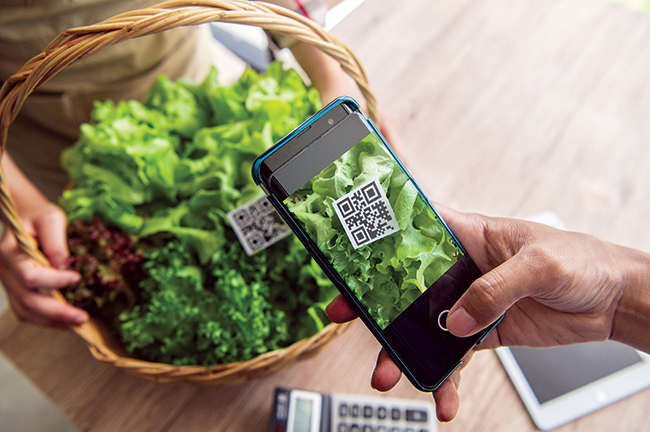
Product traceability codes would help customers easily check the product quality, thus reliable businesses would have opportunities to grow further. Photo: TL.
Le Thanh Tung, Deputy Director of the Department of Crop Production under the Ministry of Agriculture and Rural Development said that to achieve good export, it was necessary to produce to meet importing countries requirements.
Localities supported work relating to product traceability would help build their material areas, identifying their strengths to attract businesses to invest and connect production with consumption.
Therefore, local professionals and management agencies need to accompany and stand closely with businesses and farmers in building traceability and quality certification, Tung said.
Ngo Tuong Vy, Deputy General Director of Chanh Thu Company in Ben Tre Province said that when the quality of Vietnamese fruit and vegetable products was improved, enterprises will face fewer risks when exporting the products to the world market.
Vy said that China was changing a lot in terms of imports, which could be a drive for changes in Vietnam’s agricultural industry, localities and businesses.
However, in the past time, many localities are still indifferent to planting area codes for fruit trees such as durian, so that farmers must work with businesses themselves.
“This is a very wrong view and it needs to be changed as soon as possible,” she said.
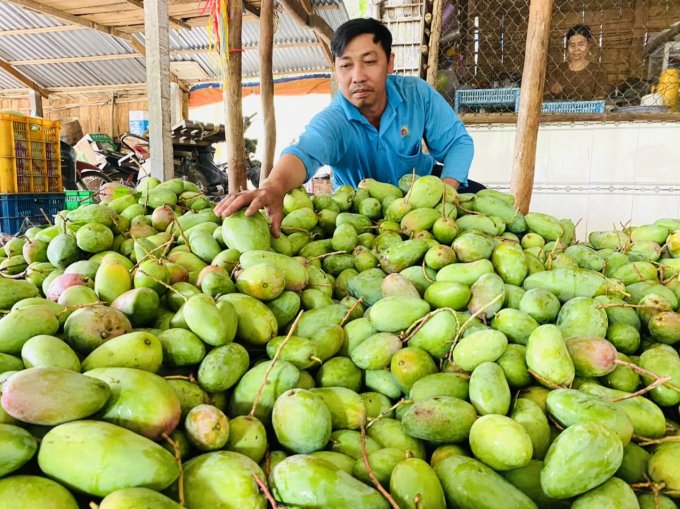
Localities support work relating to product traceability would help build their material areas, identifying their strengths to attract businesses to invest and connect production with consumption. Photo: TL.
“Businesses can connect, purchase and consume farming products but local management agencies must involve in the production orientation. If this can be changed, exports can prosper shortly,” Vy said.
Nguyen Hoang Cung, Director of Dai Thuan Thien Clean Agricultural Products Co., Ltd in Can Tho City said that with experiences of a fruit exporting enterprise, he found that once units wanted to export fruit in large quantities, agricultural products need to be produced systematically. In particular, planting area code is a prerequisite.
Currently, farmers and cooperatives are having difficulty in linking with each other and sharing the same production process.
Cung suggested that specialized agencies from the central to local levels need to guide and create conditions to support people and cooperatives to unify the production process. Cooperatives also need to create conditions for businesses to come and buy rather than produce and sell by themselves.
Translated by Hien Anh

(VAN) The U.S. is the largest market for Vietnamese cashew nuts. However, when exports to the U.S. encounter difficulties due to reciprocal tariffs, Vietnamese cashews still have many other potential markets.
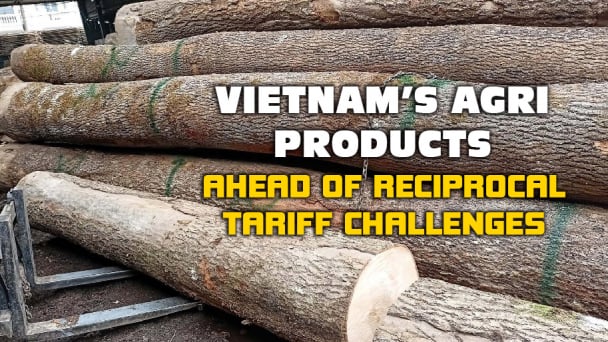
(VAN) Reciprocal tariffs present a significant obstacle to Vietnam's wood exports to the United States; however, domestic wood businesses are endeavoring to preserve their market share in this critical market.
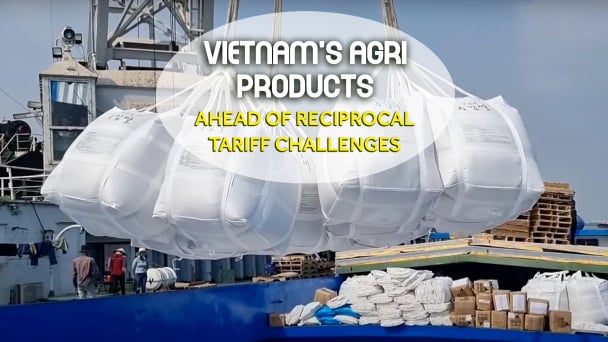
(VAN) Businesses in Vietnam are attempting to export rice to the United States ahead of the implementation of reciprocal tariffs, while remaining their optimism regarding this critical market.
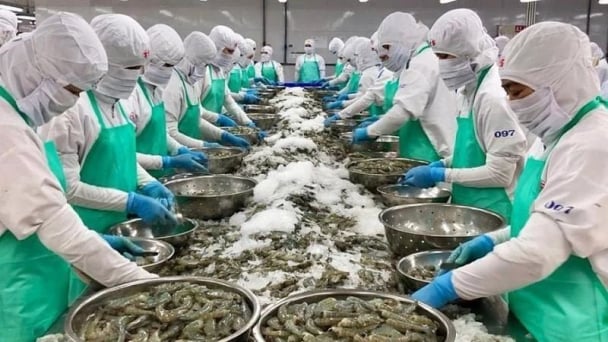
(VAN) From containers of cashew nuts, shrimp to in-depth technical dialogues, agricultural cooperation between Vietnam and the United States is entering a period of sustainable and two-way development.
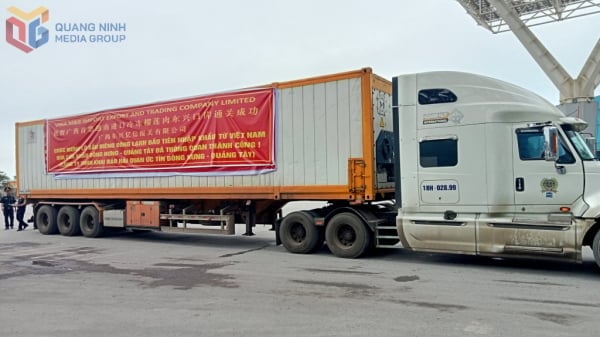
(VAN) After the talks on May 28, Vietnam successfully exported its first batch of frozen durians to China, marking a new milestone in agricultural trade cooperation between the two countries.
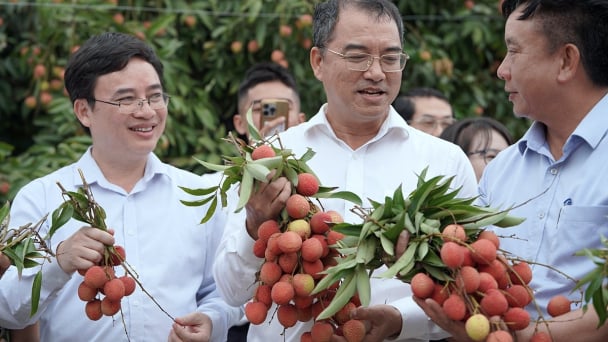
(VAN) Several major companies, such as Red Dragon and Ameii Vietnam, have signed purchasing agreements for the 2025 season, targeting markets including Japan, the United States, and the EU.
/2025/05/30/5010-5-173638_943.jpg)
(VAN) On May 29, at the GO! My Tho Trading Center, the Tien Giang Department of Industry and Trade, in collaboration with Central Retail Corporation, held the opening ceremony of the 3rd Fruit Festival 2025.